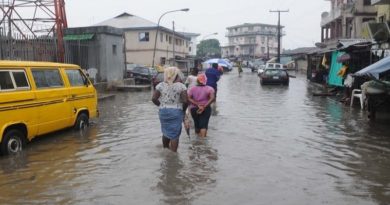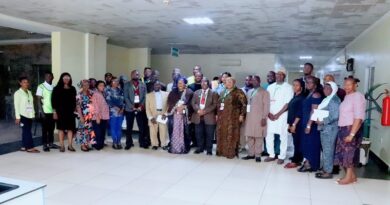Road to eliminating hazardous chemicals across Vietnam
Together with partner organizations, the GEF and the Government of Vietnam have conducted several POPs-related projects that have helped establish the necessary frameworks for long-term management while simultaneously leading cleanup efforts on the ground.
Vietnam was among the first countries to recognize the need for a domestic plan to control and remove Persistent Organic Pollutants (POPs), a class of chemical substances that are toxic, resistant to degradation, and easily transported through the environment via air, water, and migratory species. The Stockholm Convention, recognized by 180 parties, has the mission to protect the environment and human health from the threat of POPs.
In 2001, the Government of Vietnam partnered with the Global Environment Facility (GEF) to prepare a National Implementation Plan (NIP) in order to comply with the Stockholm Convention. The plan, formalized in 2006, lays out a strategy for safely managing, reducing, and eventually eliminating domestic sources of POPs.
Due to Vietnam’s rapid industrial development, a variety of POPs are found across the country. PCB oils are found in transformers, and PCB oil-containing stockpiles have been released into the environment through uncontrolled discarded waste. Remnants of DDT and other harmful pesticides are found in the soil, water and air because they were used in the past to combat mosquito-borne illnesses such as malaria. Dioxins and furans, a particularly toxic subclass of POPs, are often by-products of the manufacturing sector.
Together with partner organizations, the GEF and the Government of Vietnam have conducted several projects that have helped establish the necessary frameworks for long-term management while simultaneously leading cleanup efforts on the ground.
The UNDP-implemented $13.7 million Vietnam POPs and Sound Harmful Chemicals Management Project, which began in 2012, had the goal of implementing laws and policies needed for better governmental regulation of POPs. It facilitated the establishment of an inventory and monitoring program for POPs, a laboratory network to support the monitoring process, and a Provincial Management Plan that was the basis for local capacity building and contaminated site management in two pilot provinces.
With the World Bank, the GEF undertook the $17.85 million PCB Management Project from 2009-2014. This project focused on improving local methods of managing PCB waste, which was often burned – particularly harmful as it leads to the formation of dioxins and furans – or dumped prior to the project. The project created the necessary instruments for Vietnam to safely store its PCB stockpiles.
Another GEF-financed, UNDP-implemented project, Building Capacity to Eliminate POPs Pesticides Stockpiles, focused on the elimination of pesticides stockpiles and treatment of contaminated sites. The $11.1 million project, which was undertaken from 2008 to 2015, resulted in the removal and destruction of 1000 tons of POPs waste and stockpiles from at least seven sites. This resulted in the establishment of multiple companies with the capacity to undertake toxic waste management, as well as the introduction of new decontamination technologies. Over the project’s duration, approximately 500 government staff working in environment-related agencies received training in the management, handling, and destruction of POPs pesticides, giving Vietnam the long-term capacity to continue elimination of remaining pesticide stockpiles.
A currently ongoing project, again financed by GEF and implemented by UNDP, is focusing on the relatively new concept of green chemistry as a solution for reducing the unintentional release of POPs as a form of industrial waste. Green chemistry intends to reduce or eliminate the use and generation of hazardous substances in the design of chemical products.
The $10.4 million project, Application of Green Chemistry in Vietnam to Support Green Growth and Reduction in the Use and Release of POPs/Harmful Chemicals, seeks to create an enabling environment for green chemistry within Vietnam by demonstrating its use in key manufacturing sectors. It supports Vietnam’s 2012 Green Growth Strategy, which aims to promote environmentally friendly technologies and create an enabling environment for the greening of production sectors.
With the help of GEF and partner agencies, Vietnam has successfully implemented projects for POPs management and elimination, as well as green infrastructure, biodiversity protection, and energy efficiency. By taking steps to address multiple environmental issues using the best possible practices, Vietnam is setting a strong example for Southeast Asia and making fast progress toward lasting protection of the environment and public health.
Vietnam is the host country for the upcoming sixth GEF Assembly meetings, which will take place in June 2018.
Courtesy: GEF




